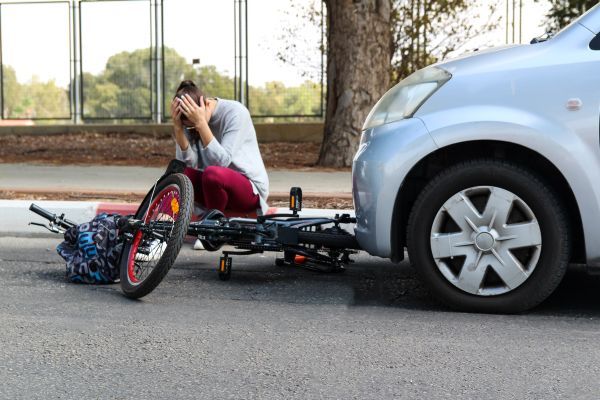How to Get Compensation for a Bicycle Accident
One moment you’re pedaling along a familiar street, maybe heading to work or out enjoying the evening air, and the next moment, everything changes. A car doesn’t stop in time. You’re hit. Suddenly, you’re on the ground, your bike is bent, and your body hurts in ways you didn’t know it could. The days that follow bring hospital visits, missed work, and mounting bills. That’s when bicycle accident compensation becomes the lifeline that helps you put the pieces back together.
Portland prides itself on being a bike-friendly city, but that doesn’t make it accident-proof. Drivers get distracted. Traffic gets messy. Conditions on the road can shift in an instant. When you’re hurt, you’re not only left with physical injuries but also the question of how to pay for everything you suddenly need, like medical care, bicycle repairs or replacement, and maybe months of recovery.
Bicycle accident compensation is meant to help cover these costs. It goes beyond the hospital bill that shows up in your mailbox. It helps protect your future, your income, your health, and your stability, so you’re not the one paying for someone else’s mistake.
After an accident, it’s easy to feel overwhelmed and frustrated, like you’re carrying the weight alone. Luckily, you don’t have to. The experienced attorneys at Warren Allen LLP, the largest law firm on the east side of the Willamette, have helped countless people through accidents like yours. Their knowledge and commitment can give you a clear path forward when everything else feels uncertain.
Detailed Documentation
Think about the first few minutes after an accident. You’re shaken, maybe in pain, and not sure what to do next. Calling the police might not be the first thing on your mind, but you should. Having their report later can make a difference in your claim. It gives you an official record, and without it, the story of what happened can get blurry, especially once insurers step in and start asking questions.
Pictures are powerful too. Take photos of your mangled bike, the dented car, and the street where it happened. This helps freeze the details before they disappear. Even something small, like skid marks or a broken headlight, might turn into key evidence. When the driver’s insurance company tries to argue their case, those images will speak louder than memory.
Get the names of any witnesses. Maybe someone walking their dog saw the whole thing or another cyclist was just a few feet behind you. Getting their contact information on the spot gives you another layer of potential evidence. Those independent voices often carry weight, especially since they aren’t tied to either side.
See a doctor right away. Some injuries show up immediately, but others don’t. You might feel fine and think you can tough it out. Then, a few days later, the pain in your neck or back makes it hard to get out of bed. Seeing a doctor right after the accident protects you in two ways: It addresses potential injuries immediately, and it links your injuries to the accident. If you wait, insurers may argue the injuries were caused by another event.
Documentation might feel like one more thing on your shoulders when you’re already hurting, but each detail you record gives you leverage when the time comes to prove what happened.
Records, Claims, and Liability
After the dust settles, the paperwork begins. Every medical visit, every prescription, and every follow-up appointment becomes part of your record. These notes record not just what injuries you had on day one, but also how they’ve affected you weeks or months later. When you’re trying to demonstrate the impact of the accident, those records can matter more than just your words.
Liability can be the toughest part to prove. Oregon uses negligence laws to determine fault, which means proving that the driver failed to act responsibly. Maybe they were texting, maybe they rolled through a stop sign, or maybe they just didn’t see you. Whatever the reason, their mistake left you injured. However, insurers may try to turn the tables, pointing out little details to argue you were partly to blame.
Damages and Settlement
Once liability is clear, the next question is how much your claim is worth. Some damages are easy to add up, like medical bills, lost paychecks, and receipts for bike repairs. Other costs aren’t as simple. What if you still need physical therapy next month? Or if your injury leads to a later surgery?
Not all damages show up on a bill, either. For instance, the stress and anxiety you experience every time you get back on your bike, or the way your life changes because of one driver’s mistake. Maybe your injuries limit the kind of work you can do in the future. These types of losses are harder to measure monetarily, but they matter, and they’re part of bicycle accident compensation too.
Insurance companies know that a check in hand can look especially tempting when bills are piling up, but accepting an offer too early can lock you into a settlement that leaves you paying out of pocket later. While they may act sympathetically, an insurer’s job is to save their company as much money as possible. That often means offering a settlement that might look decent on paper but not even come close to covering everything. However, getting proper bicycle accident compensation ensures your losses are recognized and not brushed aside.
Work with an Experienced Attorney
The stress of a claim can be exhausting and emotional, but an attorney’s guidance helps make the process less overwhelming. The attorneys at Warren Allen LLP know how to calculate the real cost of your damages and present a strong case, fighting for the compensation you deserve. If negotiations stall, they’re prepared to take the matter to court, which can sometimes be enough incentive for insurers to offer you a fairer settlement. Having an attorney by your side allows you to focus on your recovery, instead of worrying about how you’re going to pay the next bill.









